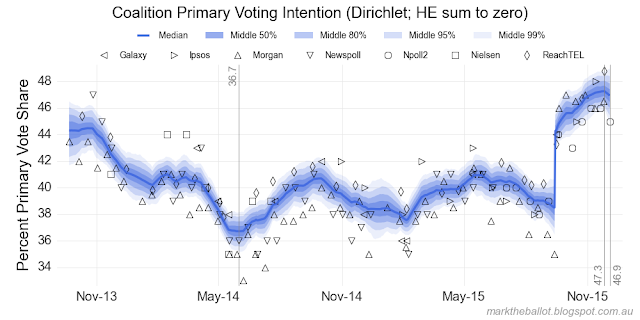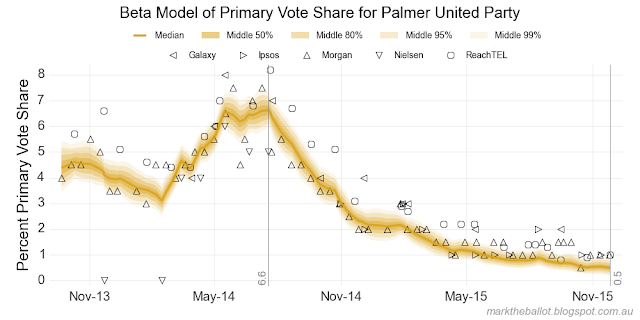Malcolm Turnbull: Satisfied 52 (-8), Dissatisfied 30 (+8)
Bill Shorten: Satisfied 23 (-3), Dissatisfied 61 (+4)
The Bayesian aggregation has flat-lined with this latest data point from Newspoll. We are estimating that the Coalition has 54.5 per cent of the two-party preferred vote.
Across all of our models, we have similar message of plateauing in the TPP support levels for the Coalition.
In terms of the primary votes, our estimates (assuming that house effects across pollsters sum to zero) are as follows. Both the Coalition and Labor have flat-lined. The Greens are much as they have been since Turnbull's ascension (about 1.5 points down than where they were in the latter Abbott months).
The Other model above includes the Palmer United Party. Given Clive Palmer's recent financial troubles, a quick look at the stand-alone Palmer model follows.The "Beta" in the title of this chart is a reference to the beta-distribution, which the model uses.
At the height of its influence, Palmer was more than half of the Other party vote. Now, at 0.5 per cent of the primary vote share, my guess is that the Palmer United Party would not win a seat in either House at the next Election, should these polling figures persist.
Moving to the aggregated attitudinal polling.












No comments:
Post a Comment